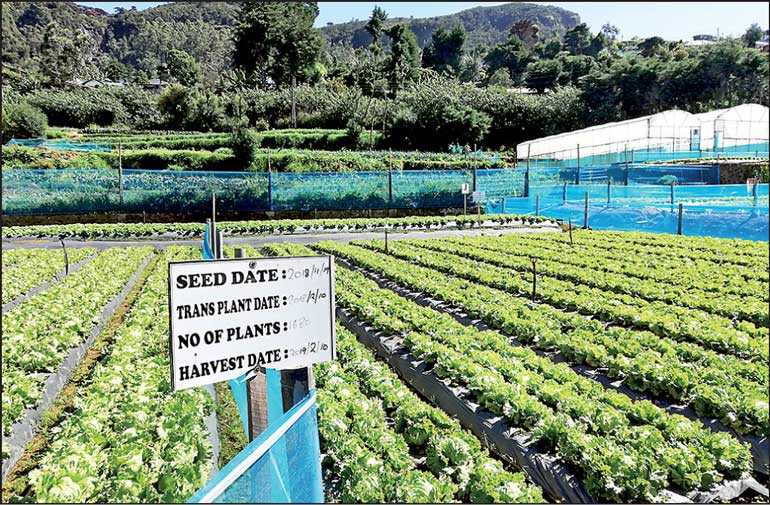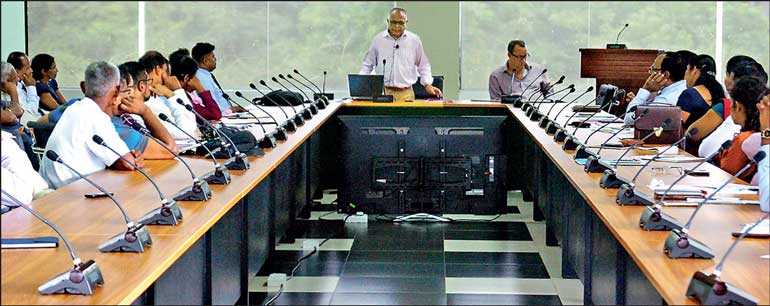Friday Feb 27, 2026
Friday Feb 27, 2026
Tuesday, 17 December 2019 00:00 - - {{hitsCtrl.values.hits}}


The European Union (EU) funds the Rs. 810 million Technical Assistance to the Modernisation of Agriculture Program (TAMAP) in Sri Lanka, supporting a move towards sustainable and productive agriculture.
The program has been implemented by the consulting company Ecorys since January 2018. One of the main activities of TAMAP has been the development of a Draft Overarching Agriculture Policy (OAP) in close consultation with stakeholders and in line with Sri Lanka’s Government Development Goals. The primary objective is to make the agricultural sector more productive, diversified, climate-resilient, market-oriented and equitable.
Other key result areas include creating an enabling environment and relevant policies for the modernisation and diversification of agricultural production; the promotion of agricultural exports; researching existing systems and practices used by central and provincial agricultural ministries to ensure better planning; budgeting and policy improvements; and utilising statistical and analysis systems to monitor and assess the impact of the OAP’s implementation.
Apart from Government entities involved in agriculture, presently several private sector players – large and small scale suppliers, other agribusinesses, those involved in marketing and logistics, Non-Governmental Organisations (NGOs) and Non-State actors – are also all involved in the program. A vital aspect is to gain a sound understanding of all stakeholders – their interests, diverse roles and areas of jurisdiction – in order to facilitate their buy-in for sector reform, provide a single policy framework, and enhance the drive for implementation.
To date, seven value chain studies for selected commodities with future potential for development have been completed. TAMAP assisted the EU Delegation to Sri Lanka and the Maldives in preparing the documentation for future interventions which will be implemented by other actors in the areas of improving food quality and safety ensuring quality and enhancing the variety of products for the local market as well as export. TAMAP also carried out a cold chain pre-feasibility study to assess and recommend future interventions in the agriculture sector with a view among others to reduce postharvest losses of perishable agricultural commodities.
The program strengthens the competitiveness of Sri Lankan exports by maximising synergies with ongoing trade-related assistance as well as GSP+, piloting the modernisation of the organic food market through measures such as certification and labelling, digitalisation of supply chain and traceability and developing an incentive scheme for private investment.
Commenting on the project, TAMAP public sector capacity building expert and Team Leader Dr. Christof Batzlen said, “Developing a viable and vibrant agriculture sector presents a significant market opportunity for the private sector and our farmers in Sri Lanka. Mainstreaming farming as a business among all famers ranging from smallholder farmers to large estates is a must to ensure sustainability and an efficient, effective and competitive agriculture sector in Sri Lanka.” The EU Delegation’s Head of Co-operation Frank Hess commented, “TAMAP will help bring more income to the farmers and better and healthier products to the consumers.”